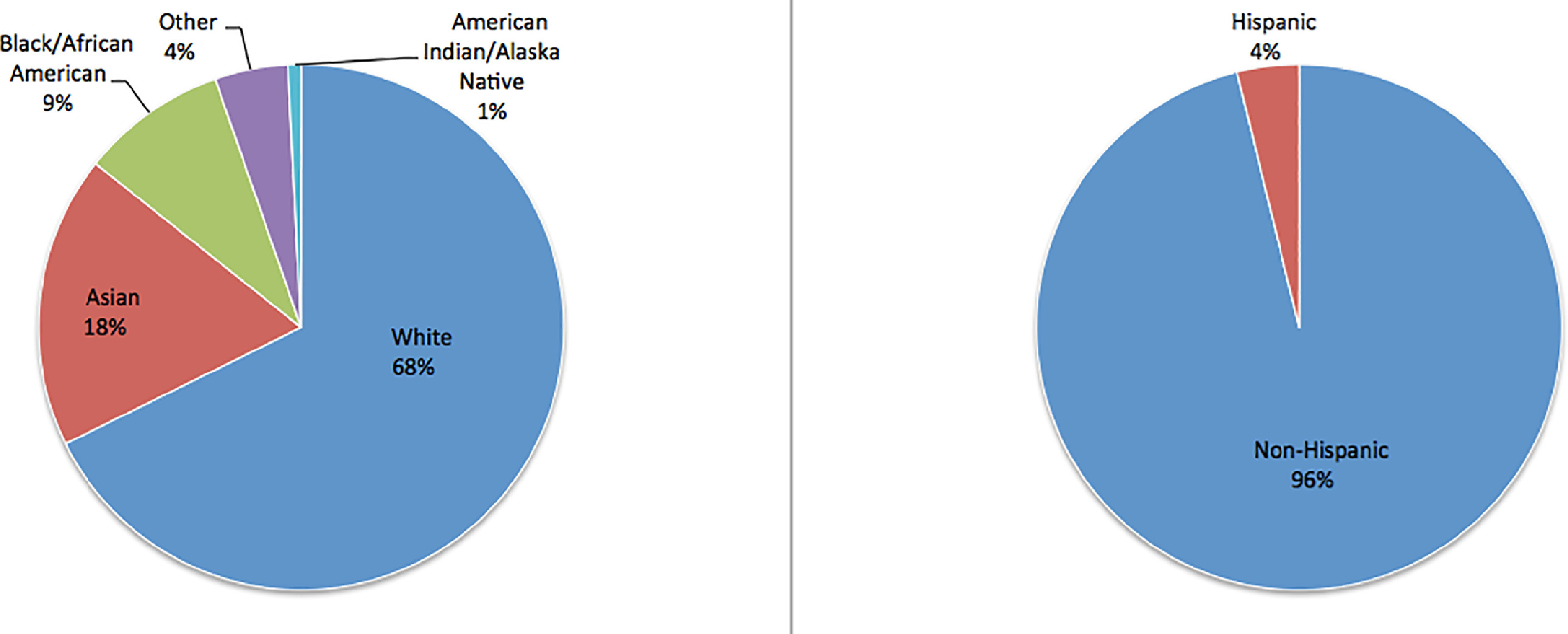Elsevier, Urology, Volume , 2021
Objective: To define the current proportion of underrepresented minority (URM) academic urologists in leadership positions. Methods: A cross-sectional observational study of leadership positions in active United States Urology Residency Programs in 2020 was conducted. Academic urologists in leadership positions were electronically mailed a survey asking about personal and professional demographics. Self-reported variables including administrative position, race, and ethnicity were collected and analyzed.
Elsevier, European Journal of Radiology Open, Volume 8, January 2021
Purpose: Besides diagnostic imaging devices, in particular computed tomography (CT) and magnetic resonance imaging (MRI), numerous reading workstations contribute to the high energy consumption of radiological departments. It was investigated whether switching off workstations after core working hours can relevantly lower energy consumption considering both ecological and economical aspects.
Elsevier, Blood, Volume 137, 28 January 2021
Social determinants of health, including poverty, contribute significantly to health outcomes in the United States; however, their impact on pediatric hematopoietic cell transplantation (HCT) outcomes is poorly understood. We aimed to identify the association between neighborhood poverty and HCT outcomes for pediatric allogeneic HCT recipients in the Center for International Blood and Marrow Transplant Research database.
Elsevier, Agriculture, Ecosystems and Environment, Volume 305, 1 January 2021
Critical knowledge gaps about environmental fate and unintentional effects of currently used pesticides (CUPs) hamper the understanding and mitigation of their global impacts on ecological processes. We investigated the exposure of earthworms to 31 multiclass CUPs in an arable landscape in France. We highlighted the presence of at least one pesticide in all soils (n = 180) and 92 % of earthworms (n = 155) both in treated crops and nontreated habitats (hedgerows, grasslands, and cereals under organic farming).
Elsevier, One Earth, Volume 4, 22 January 2021
The upcoming Convention on Biological Diversity (CBD) meeting, and adoption of the new Global Biodiversity Framework, represent an opportunity to transform humanity's relationship with nature. Restoring nature while meeting human needs requires a bold vision, including mainstreaming biodiversity conservation in society. We present a framework that could support this: the Mitigation and Conservation Hierarchy.
Elsevier, Current Research in Green and Sustainable Chemistry, Volume 4, January 2021
Porous liquids form a new class of materials, which are liquid at room temperature and possess permanent porosity. The latter is a characteristic generally associated with solid-state only. Since the idea of porous liquid was exploited over a decade ago, the researchers see an opportunity of solving the solid material's limitation in gas capture and separation. In this discussion, we present the most recent developments on porous liquids and, in our perspectives, how they can tackle energy and environmental issues by their coupling with membrane technology.
Elsevier, The Lancet Planetary Health, Volume 5, January 2021
Background: The association of air pollution with multiple adverse health outcomes is becoming well established, but its negative economic impact is less well appreciated. It is important to elucidate this impact for the states of India. Methods: We estimated exposure to ambient particulate matter pollution, household air pollution, and ambient ozone pollution, and their attributable deaths and disability-adjusted life-years in every state of India as part of the Global Burden of Disease Study (GBD) 2019.
Elsevier, Journal of Steroid Biochemistry and Molecular Biology, Volume 205, January 2021
Background and Purpose: Altered cholesterol metabolism is associated with increased risk of neurodegeneration and in particular with the development of Alzheimer's disease (AD). Here, we investigate whether non-cholesterol sterols and oxysterols in the central nervous system are associated with (i) the presence of cerebral AD pathology, (ii) distinct aspects of AD pathology, i.e. amyloid pathology, neuronal injury, and tau pathology, and (iii) cognitive decline over time.
Elsevier, Medical Image Analysis, Volume 67, January 2021
The enormous social and economic cost of Alzheimer's disease (AD) has driven a number of neuroimaging investigations for early detection and diagnosis. Towards this end, various computational approaches have been applied to longitudinal imaging data in subjects with Mild Cognitive Impairment (MCI), as serial brain imaging could increase sensitivity for detecting changes from baseline, and potentially serve as a diagnostic biomarker for AD. However, current state-of-the-art brain imaging diagnostic methods have limited utility in clinical practice due to the lack of robust predictive power.
Elsevier, Wellbeing, Space and Society, Volume 2, January 2021
In 2006, the National Health Service commenced with assuming responsibility for the delivery and commissioning of mental healthcare services in prisons within the UK. Previous research has indicated that some prison environments may present challenges to the delivery of mental healthcare for prison populations. The present study aimed to explore the experiences of staff working in NHS offender health teams to identify the sources of adversity that frontline staff may encounter when providing mental healthcare in prison settings.


